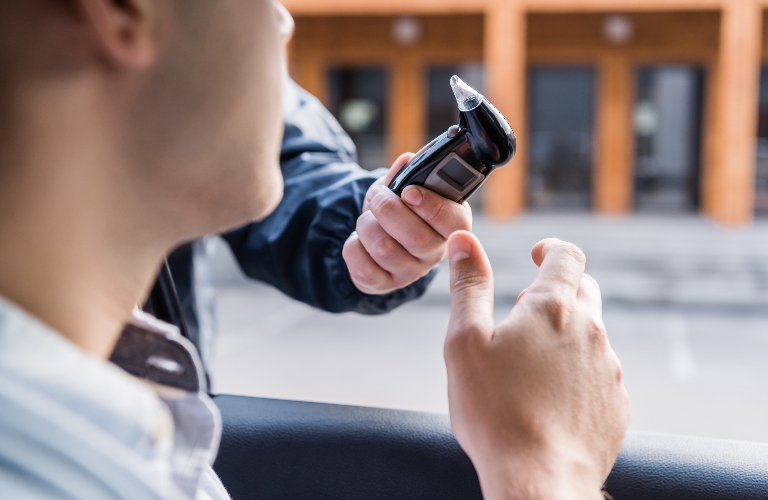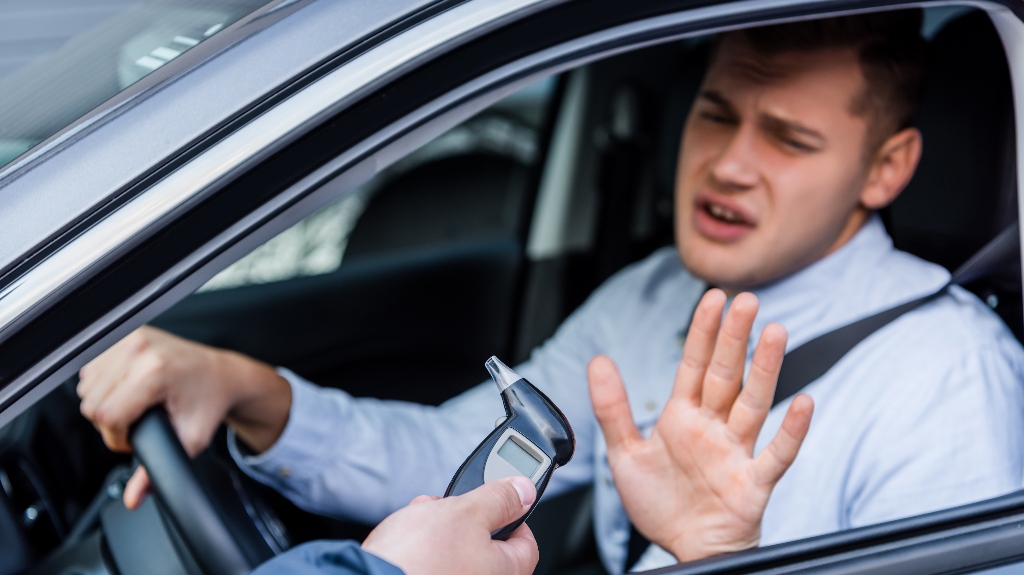The Consequences of Refusing a Breathalyzer Test in Wisconsin
Refusing a breathalyzer test in Wisconsin is not a loophole or a way to sidestep an OWI charge. Under the state’s implied consent law, saying no to the officer can trigger penalties. Many times, they can be just as serious as a drunk driving conviction.
If you’re unsure what actually happens when you decline a test, here’s a look at the consequences of refusing a breathalyzer test in Wisconsin.
What Is Wisconsin’s Implied Consent Law?
When you get a Wisconsin driver’s license and operate a vehicle on public roads, you automatically agree to certain conditions under the implied consent law.
Under that, if you are lawfully arrested for operating while intoxicated (OWI), you must submit to a chemical test to determine your blood alcohol concentration (BAC). In short, you must submit to a breath, blood, or urine test, or face consequences.
Refusal Doesn’t Stop an Arrest
Many drivers believe that refusing a test will prevent prosecutors from getting evidence of their BAC. As a result, it will make it harder to convict them of OWI. While that might be partially true, Wisconsin law discourages refusals by imposing steep penalties. Refusing a breathalyzer can lead to:
- Automatic license revocation
- Mandatory ignition interlock device (IID) installation
- Higher fines and court costs
- A separate refusal charge in addition to an OWI
No, you are not avoiding trouble; you are just swapping one set of consequences for another.
Is License Revocation Possible?
The first consequence of refusing a breath test is an automatic revocation of your driver’s license. In Wisconsin, the revocation periods for refusal are:
- First offense: One year
- Second offense within 10 years: Two years
- Third or subsequent offense: Three years
Along with that, you may face a mandatory waiting period before you can be eligible for an occupational license.
Will You Need an Ignition Interlock Device (IID)?
When you refuse a test in Wisconsin, you can face the mandatory installation of an ignition interlock device (IID) in every vehicle you own or operate.
You will have to blow into it before starting the engine. If it detects alcohol, your car will not start. The costs, including installation, monthly fees, and removal, are your responsibility.
Even first-time refusal offenders are subject to this requirement if their BAC would have been 0.15 or higher or if they have prior OWI-related offenses.
The Refusal Charge
Along with the license revocation and IID installation, Wisconsin treats a refusal as a separate violation. That means you will be summoned to court for a refusal hearing.
At this hearing, the state has to show that the officer had probable cause to request the test, explained the consequences of refusal, and that you refused. If the judge rules against you, the penalties start automatically.
Unfortunately, this refusal charge will also show up on your driving record. In turn, that can increase your insurance rates and lead to future legal issues.
Criminal OWI Charges May Still Proceed
Remember that refusing a breathalyzer does not necessarily prevent an OWI charge. Officers can still arrest you based on their observations. They may also obtain a warrant for a blood test to determine your blood alcohol level. Even if you refuse the breath test, you might still face an OWI prosecution plus the refusal penalties.

Can You Fight a Refusal?
Yes, but it is not easy, and you will need legal help. At your refusal hearing, you can challenge whether the officer had probable cause. Your lawyer may also question whether they properly informed you of the consequences or whether you actually refused.
A skilled OWI defense attorney can review the circumstances and identify potential defenses to the charge. However, since the state’s burden is lower in a refusal case than in an OWI prosecution, success is not guaranteed.
Refusal of a Breathalyzer Leads to Serious Consequences
What are the consequences of refusing a breathalyzer test in Wisconsin? A refusal may seem like a way to avoid trouble, but in reality, it can trigger automatic penalties that are harsh and long-lasting.
If you’ve been arrested for drunk driving or refused a chemical test, you want to get legal help right away. Reaching out to an experienced Wisconsin OWI attorney right away can help you understand your options.
At Melms Law, we are ready to assist with your case and protect your rights. Schedule a consultation today.



